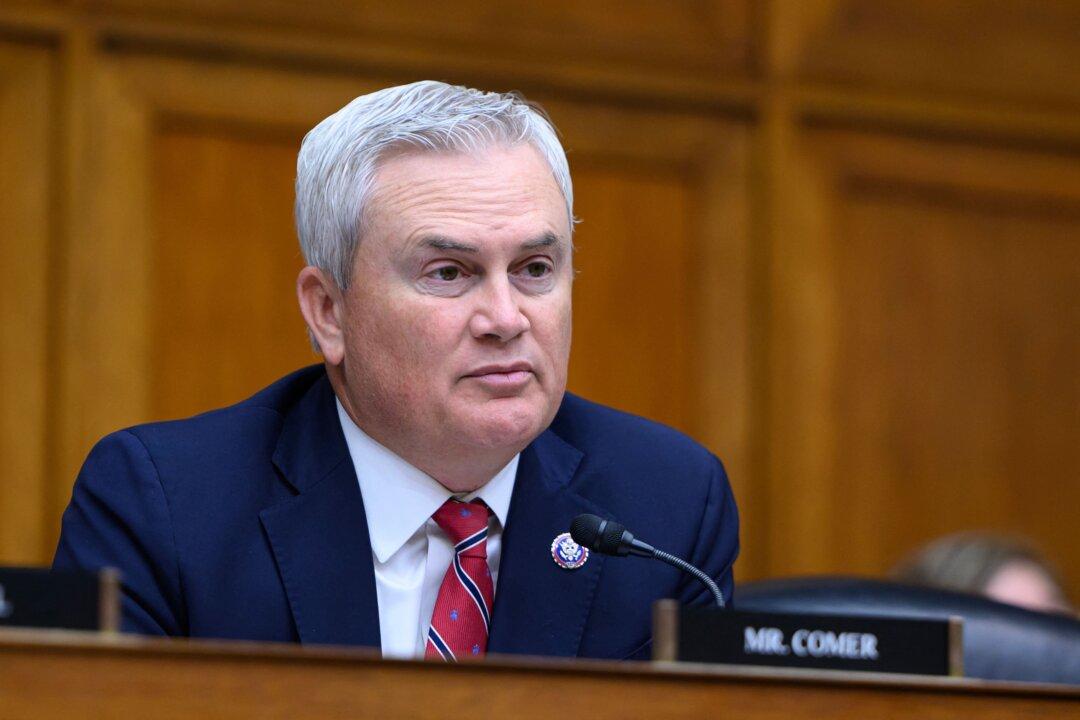Three influential House Republicans are pressing the Biden administration to reveal just how much of the federal bureaucracy is continuing to work from home after the administration ended the COVID-19 emergency status.
Rep. James Comer (R-Ky.), chair of the House Oversight Committee; Rep. Pete Sessions (R-Texas), chair of the Subcommittee on Government Operations and the Federal Workforce, and Rep. Lauren Boebert (R-Colo.), sent letters (pdf) to 23 federal officials last week, demanding they disclose their work-from-home policies and statistics.





